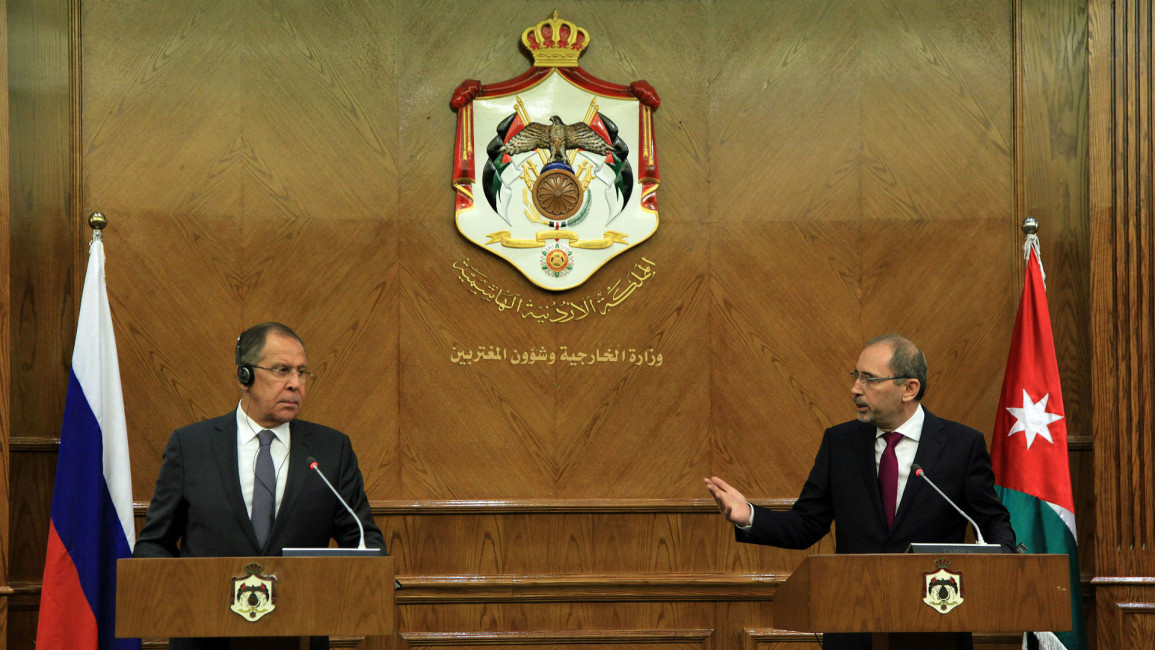Jordan, Russia agree to set-up Syria 'de-escalation zone'
Jordanian and Russian foreign ministers met in Amman to discuss progress in setting up a de-escalation zone in "the fastest time possible" in a region that includes the Quneitra province bordering Israel.
Diplomats told Reuters that they have included US disquiet about Russian involvement in policing the agreement, the final positions of fighting forces, and when to reopen a key border crossing as part of the plan.
Russian and US officials met secretly in Jordan in June and announced a ceasefire agreement in Syria's southwest a month later.
The truce has reduced fighting in the area and is meant to lead to a permanent de-escalation.
"We expressed our support to resolve all issues relating to the de-escalation zones' performance," Russian Foreign Minister Sergei Lavrov told reporters in Amman.
"The goal is to set up a de-escalation zone in the fastest possible time," his Jordanian counterpart Ayman Safadi said.
"Our priority is that our borders are secure and that means that there should be no Daesh nor Nusra nor sectarian militias," Safadi added, referring to Islamic State and a rebel force once linked to Al Qaeda.
 |
|
Two senior diplomats and an official told Reuters that progress has been made in drawing up a map of the zone, which will include the provinces of Quneitra, which borders Israel, and the southern Daraa province bordering Jordan.
Washington has also secured an understanding with Moscow that Iranian-backed militias must be relocated 40 kilometres from the border, allaying Israeli and Jordanian fears about the presence of Hizballah fighters in the area.
Russian foreign minister Lavrov reportedly urged Jordan to re-open its Nasib border crossing with Syria, diplomats said, although Amman has so far insisted that it requires more security before following through on the move.
On Monday, Lavrov said that Saudi Arabia has assured Russia of its support for the negotiation of local ceasefires and setting up "de-escalation" zones across the country.
He said that when the process began, Saudi leaders expressed support for it and said "they would cooperate in creating de-escalation zones and implementing other initiatives which are being developed in Astana."
Hundreds of thousands of civilians have been killed in the war, mostly by the regime and its powerful allies, and millions have been displaced both inside and outside of Syria.
The brutal tactics pursued mainly by the regime, which have included the use of chemical weapons, sieges, mass executions and torture against civilians have led to war crimes investigations.
Agencies contributed to this report.


![President Pezeshkian has denounced Israel's attacks on Lebanon [Getty]](/sites/default/files/styles/image_684x385/public/2173482924.jpeg?h=a5f2f23a&itok=q3evVtko)



 Follow the Middle East's top stories in English at The New Arab on Google News
Follow the Middle East's top stories in English at The New Arab on Google News


